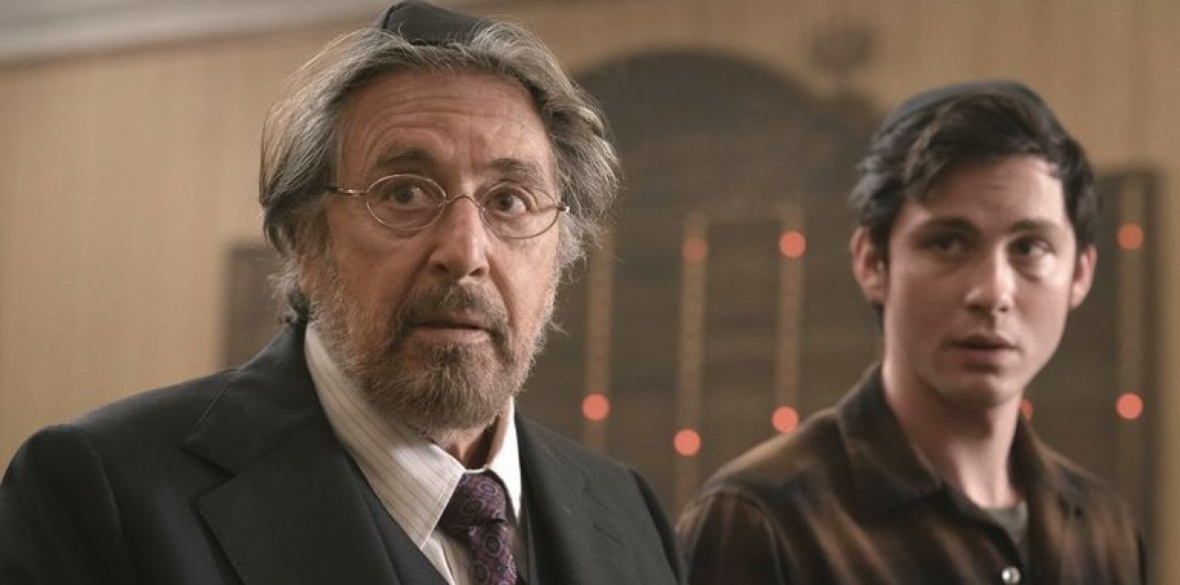This is the last article you can read this month
You can read more article this month
You can read more articles this month
Sorry your limit is up for this month
Reset on:
Please help support the Morning Star by subscribing here
THERE'S nothing impoverished about the high-production values of Amazon’s Hunters, a flashy and highly stylised biff-bam-pow! comic-book version of the Holocaust and its aftermath.
It has drawn criticism because of its overinflated scenes from the concentration camps, including one of a human chess board where the pieces taken off the table are then slaughtered. In a Tweet, Auschwitz Memorial condemned the series “as not only dangerous foolishness and caricature. It also welcomes future deniers.
“We honour the victims by preserving factual accuracy.”
Hannah Arendt talked about the banality of evil in her coverage of the Nuremberg trials of the nazis after WWII. Here, what we have is the commodification of evil.
Unlike the film JoJo Rabbit, which has something serious and heartfelt to say about the limiting stupidity of xenophobia and hate speech, this series is only about the hyperactive, overblown narratives now powering the race between Netflix, Amazon and the other streaming services for viewers.
The series is open about its comic-book intentions. At one point a boy brought into the gang of nazi hunters, who each have their own “powers,” asks the leader how he put the team together. The latter is Professor X, referencing a concentration-camp plot at the origin of the X-Men series.
Aspects of the post-Holocaust experience are touched on, including Operation Paperclip, where the US secretly brought nazi scientists to work on its projects, most notably the space race and the hydrogen bomb.
This, though, is old material and has been treated much better in a series like The X-Files. Here, the intersection with reality only adds to the superhero and supervillain bluster to the point where the end of season one sees the introduction of the ultimate Holocaust villain, reduced in Hunters to the status of a Magneto, the X-Men’s arch foe.
Set in 1977, Hunters draws on other comic book-like tropes, including blaxploitation costumes and imagery and campy Batman graphics from the 1960s show, which work to dislocate the series from any factual historical grounding.
Al Pacino — whose first series this is — is at the centre as the leader of the band of hunters and he is perhaps the most troubling character. He preaches a violent form of revenge as opposed to justice, justified by the still-active and lethal presence of the nazis.
There is a recognition that the violence he perpetuates is the result of what happened to him in the camps, but this realisation is lost within the show’s overwhelming attitude — and the Pacino character’s persistent argument — that the only real imperative is a forward thrust toward more unquestioned violence.
Yes, there is a resurgence today of anti-semitism and nazi sentiments never die — witness the far-right AfD in Germany. But there are no global plots for a nazi takeover.
Thus the violence Hunters promotes may be necessary self-defence by Jews. But it could also eerily rationalise other forms of violence prevalent today, including that of Israeli settlers and their protectors against the Palestinians.
Dennis Broe is a TV, film and culture critic and academic. His books include Birth of the Binge: Serial TV and The End of Leisure. His new detective novel Left of Eden, about the Hollywood blacklist, is published by Pathmark Press.












